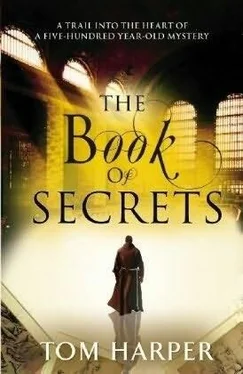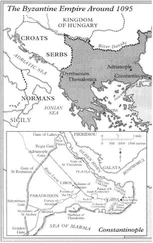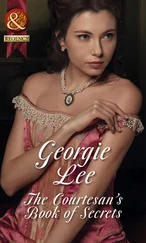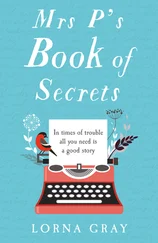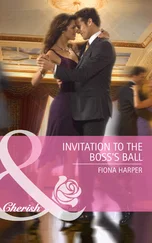In the beginning was the Word, and the Word was with God and the Word was God.
The Word was God; the Word was perfect. I was a miserable creature, as far from the Word as the stars from the sea.
The full compass of my wickedness overwhelmed me. I had never felt so wretched. I felt every one of my sins like hard pustules erupting from my skin. I fell prostrate on the floor. The poison rushed out of me and I vomited; even when my stomach was empty I could not stop, but convulsed with dry heaves until the last drop was squeezed out of my bones.
I lay on the floor, gasping and moaning. Out of the depths I called to God. He answered. In that chapel, with Christ looking down, I comprehended the eternal. My whole body trembled with the resonance. The book of my being broke into the words that formed it; the words into letters; the letters into the impressions of the sharp chisel that first made them. In an instant, I was transported back from the farthest wastes of the world and reconciled to God.
Glowing threads stretched out from the candles and spiralled around me. They wrapped me in bands of light. They whispered warm words in my soul. I was forgiven. The worm, the demon who had inhabited me so long, was banished. His shrivelled corpse lay on the floor amid the bile and poison.
I had always been with God, but in my sin I had not known Him. I had sensed him my whole life, had pursued Him even when I did not know it. The principle of perfection, the unity of all things. One God. One faith. One perfect substance in the universe.
God is perfect form in which all differences are united.
I would take lead and change it. I would melt it, stir it and reshape it. I would coat it with oils and squeeze it out. I would transform it from base metal into the very word of God.
You alloy it with the Stone, so that the seeds imprisoned in the metal blossom, until in the unity of perfection it can take any shape you command.
I would redeem the gross imperfections of my soul.
Not for wealth or riches, but to perfect the universe.
Karlsruhe
The night still hadn’t broken. The darkness was absolute as they hurried outside and crossed the car park. The car was an old Volkswagen Golf, the side panels bashed and dented, the roof hooded in two inches of snow. They waited while Sabine scraped the windscreen, then longer still while she nursed the cold engine into life. The tailpipe spluttered and belched fumes. Sabine hopped out of the driver’s seat and gestured Nick to get in.
‘Take it.’
Nick started. ‘What about you?’
‘I can have a ride with my boyfriend. For now, it’s better for me to stay here – make sure they cannot trace you.’
Nick thought of Brother Jerome and shook his head. ‘You’ve done enough for us already. If you think the black knight was scary online, you really don’t want to meet him in person. These guys are vicious. Half the people who’ve helped us in the last week have ended up dead.’
‘Now you tell me.’ Sabine gave a tight smile. ‘My boyfriend’s parents have a cabin in the Black Forest. I can stay there a while maybe.’
‘Be careful,’ said Nick.
‘You too. And bring back the car, OK?’
‘I’ll even give you a full tank of gas.’
Nick slid behind the wheel. Emily got in the other side, then leaned over from the passenger seat. ‘Is there a library on campus?’
Sabine pointed to a round building on the far side of a soccer field. ‘It’s open all the time.’
‘Thanks for everything.’
Nick put the car in gear. He almost stalled twice on his way out of the car park, fishtailed on a patch of ice at the gate and regained control just in time to avoid smacking into a lamp post. He checked the rear-view mirror and hoped Sabine hadn’t thought better of her offer.
‘What was that about the library?’ he asked.
‘I need to check something out.’ The hard edge in Emily’s voice discouraged Nick from arguing. He was too tired anyway – almost too tired to drive. He pulled up on the kerb outside the library.
‘Keep the engine running,’ Emily said.
Nick sat behind the wheel and waited while Emily ran up the steps into the building. He rubbed his hands together and wished he had some gloves. The old car’s feeble heating was no match for the bitter pre-dawn cold outside.
His eyes drifted down. A blurred white shape stood out against the darkness, a sheet of paper lying on the passenger seat. The printout. Emily must have left it there in her haste. He flicked on the map light and studied it. In the rush to be away from the computer lab he hadn’t even looked at it; when he asked Emily what she’d found, she’d only put a finger to her lips.
The image in his hand looked like a half-finished jigsaw, one that had been put together impatiently by someone who didn’t have the attention span for the fiddly background bits. Nick had told the program to ignore any fragments which had no marks on them, so as to speed up the assembly process. The result was an hourglass portion of the torn-up page. Whatever Emily had seen certainly wasn’t obvious to Nick. Half the page was taken up with a picture that looked like an ox with an unusually long tail. The digital reconstruction wasn’t perfect: false overlaps and subtle distortions gave the picture an impressionistic blur that wasn’t helped by the dim light in the car. Even so, Nick was pretty confident he could identify the artist by his style. He’d seen enough of the Master of the Playing Cards’ work in the last few days to become an expert.
Underneath the picture were a few lines of writing. This was sharper – Nick’s algorithms were tuned to pick out text – but he still struggled to decipher it. The letters were thick, densely packed into their lines and irregularly shaped: the upright strokes had a vertical solidity like the pillars of a cathedral, while the vaulting curves and cross-strokes bridged them with thread-like delicacy.
He delved in his bag for the bestiary they’d rescued from the warehouse in Brussels and opened its first page to compare. They were different. The book’s pictures were pushed to the side of the text, while on the printout it sat proudly centred in its own space. The handwriting looked neater on the printout too, though when Nick actually tried to read it he found it harder to make out the letters.’
A vivid white flash split the night open. Nick turned in absolute terror. Had he been seen? Photographed? Shot at?
It flashed again – not a camera or a gun, but a strobe light mounted on the front of the library. Nick realised that the sound he’d thought was the panic of his own subconscious was actually the muffled ringing of an alarm bell.
The alarm got suddenly more frantic as the library door burst open. Emily ran out down the steps. She threw herself into the car and slammed the door.
Nick looked at the book in her hands, a tall slim volume bound in red and black cloth.
‘Did you just steal a library book?’
‘Borrowed.’ She shoved it into the pocket in the door. ‘Just drive.’
The car lurched off the kerb and down the road. Nick checked his mirrors but didn’t see anyone coming after them.
‘Now will you tell me what this is all about?’
Mainz, 1448
Two old men stood on a hillside. A passing observer might have taken them for brothers. They were a similar age, near fifty, both with grey beards and lean bodies wrapped in furs against the autumn chill. Their features differed in detail, but beneath the aged skin and crooked bones both faces bore the hunger of men who still had business with the world.
They were not brothers. One was Johann Fust. The other was me. All around us, labourers turned the soil in the sloping field. They pulled up rocks and deposited them in piles to be fitted into walls. In the middle of the field, a group of carpenters raised timbers for a watchtower. When spring came, the derelict land would be planted with vines and blossom into a vineyard. In the same way, I hoped Fust’s seeds would make my own venture flourish.
Читать дальше
